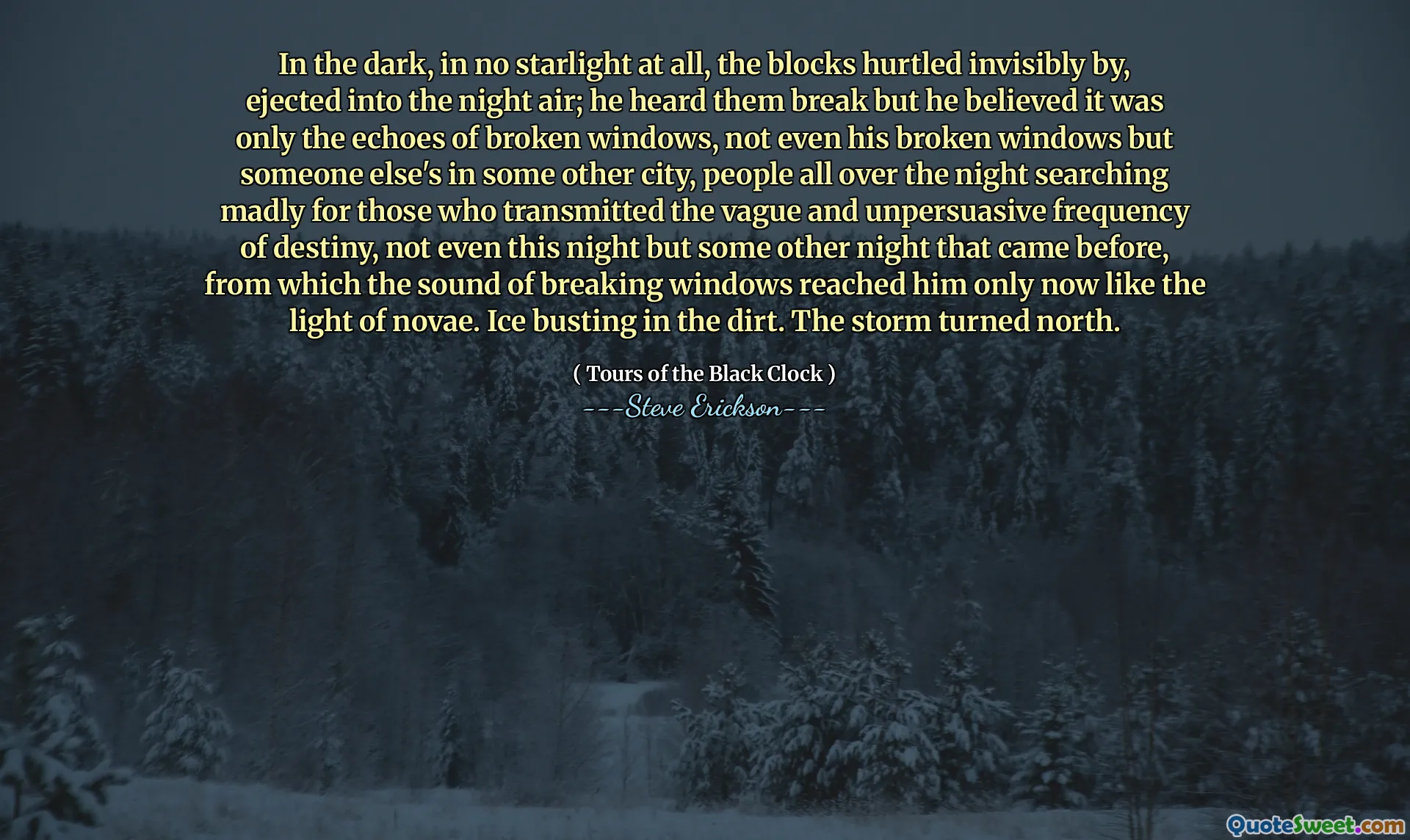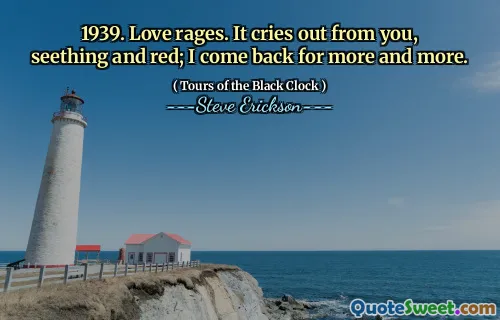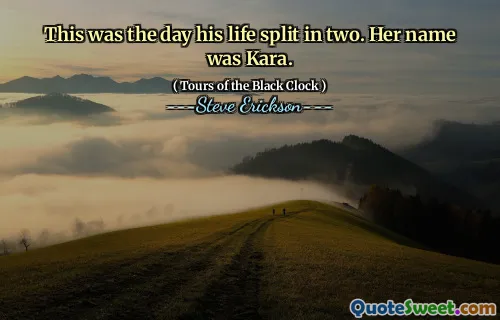
In the dark, in no starlight at all, the blocks hurtled invisibly by, ejected into the night air; he heard them break but he believed it was only the echoes of broken windows, not even his broken windows but someone else's in some other city, people all over the night searching madly for those who transmitted the vague and unpersuasive frequency of destiny, not even this night but some other night that came before, from which the sound of breaking windows reached him only now like the light of novae. Ice busting in the dirt. The storm turned north.
In Steve Erickson's "Tours of the Black Clock," the protagonist experiences a surreal moment where the environment becomes almost unrecognizable. As blocks are projected into the darkness, the sounds of destruction blend with the echoes of broken windows, suggesting a deeper connection to the chaotic reality of life in different cities. This moment emphasizes the feeling of isolation amid collective turmoil, as people search for meaning within the unknown frequencies of fate.
The narrative captures the essence of despair and the passage of time, where past events resonate in the present. The imagery of breaking windows and the storm shifting direction adds to the sense of urgency in understanding one’s place in a world filled with uncertainty. Erickson’s prose explores themes of fate, memory, and the invisible threads that bind individuals to their shared experiences, making the reader contemplate the invisible forces shaping their own lives.










